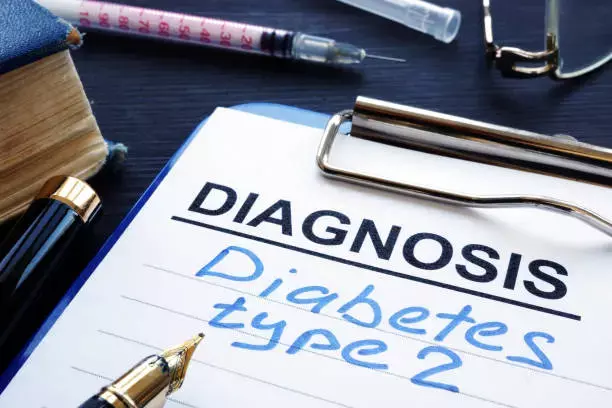- Home
- Medical news & Guidelines
- Anesthesiology
- Cardiology and CTVS
- Critical Care
- Dentistry
- Dermatology
- Diabetes and Endocrinology
- ENT
- Gastroenterology
- Medicine
- Nephrology
- Neurology
- Obstretics-Gynaecology
- Oncology
- Ophthalmology
- Orthopaedics
- Pediatrics-Neonatology
- Psychiatry
- Pulmonology
- Radiology
- Surgery
- Urology
- Laboratory Medicine
- Diet
- Nursing
- Paramedical
- Physiotherapy
- Health news
- Fact Check
- Bone Health Fact Check
- Brain Health Fact Check
- Cancer Related Fact Check
- Child Care Fact Check
- Dental and oral health fact check
- Diabetes and metabolic health fact check
- Diet and Nutrition Fact Check
- Eye and ENT Care Fact Check
- Fitness fact check
- Gut health fact check
- Heart health fact check
- Kidney health fact check
- Medical education fact check
- Men's health fact check
- Respiratory fact check
- Skin and hair care fact check
- Vaccine and Immunization fact check
- Women's health fact check
- AYUSH
- State News
- Andaman and Nicobar Islands
- Andhra Pradesh
- Arunachal Pradesh
- Assam
- Bihar
- Chandigarh
- Chattisgarh
- Dadra and Nagar Haveli
- Daman and Diu
- Delhi
- Goa
- Gujarat
- Haryana
- Himachal Pradesh
- Jammu & Kashmir
- Jharkhand
- Karnataka
- Kerala
- Ladakh
- Lakshadweep
- Madhya Pradesh
- Maharashtra
- Manipur
- Meghalaya
- Mizoram
- Nagaland
- Odisha
- Puducherry
- Punjab
- Rajasthan
- Sikkim
- Tamil Nadu
- Telangana
- Tripura
- Uttar Pradesh
- Uttrakhand
- West Bengal
- Medical Education
- Industry
Low glycaemia increases risk of frailty and functional decline in elderly with T2DM: Study.

Low glycaemia increases the risk of frailty and functional decline in older people with type 2 diabetes, suggests a study published in the Diabetes Research and Clinical Practice.
Type 2 diabetes used to be known as adult-onset diabetes, but both type 1 and type 2 diabetes can begin during childhood and adulthood. Type 2 is more common in older adults, but the increase in the number of children with obesity has led to more cases of type 2 diabetes in younger people.
A team of researchers conducted a systemic review to explore the risk of frailty and functional decline associated with low glycaemia in older people with type 2 diabetes.
The results of the systemic review are as follows:
- 11 studies were included.
- Six studies investigated the risk of frailty or physical decline with hypoglycaemia.
- Hypoglycaemia increased the risk of incident frailty in one study and the risk of fractures in four studies.
- In the sixth study, hypoglycaemia was associated with dependency.
- Five studies explored the association of low blood glucose/HbA1c with frailty.
- One study showed that mean blood glucose decreased with increasing frailty. Two studies reported that HbA1c inversely correlated with clinical frailty scale and HbA1c<6.9% increased risk of frailty respectively.
- The last two studies showed that HbA1c <6.5% associated with risk of any fracture and HbA1c <6.0% associated with increased risk of care need respectively.
Thus, the researchers concluded that low glycaemia increases the risk of frailty and functional decline in older people with type 2 diabetes. Management should minimise the incidence of low glycaemia in these patients.
Reference:
A study titled, "Low glycaemic state increases the risk of frailty and functional decline in older people with type 2 diabetes mellitus – evidence from a systematic review" by Abdelhafiz AH et al. published in the Diabetes Research and Clinical Practice.
For further reference log on to:
DOI: https://doi.org/10.1016/j.diabres.2021.109085
Dr. Shravani Dali has completed her BDS from Pravara institute of medical sciences, loni. Following which she extensively worked in the healthcare sector for 2+ years. She has been actively involved in writing blogs in field of health and wellness. Currently she is pursuing her Masters of public health-health administration from Tata institute of social sciences. She can be contacted at editorial@medicaldialogues.in.
Dr Kamal Kant Kohli-MBBS, DTCD- a chest specialist with more than 30 years of practice and a flair for writing clinical articles, Dr Kamal Kant Kohli joined Medical Dialogues as a Chief Editor of Medical News. Besides writing articles, as an editor, he proofreads and verifies all the medical content published on Medical Dialogues including those coming from journals, studies,medical conferences,guidelines etc. Email: drkohli@medicaldialogues.in. Contact no. 011-43720751


